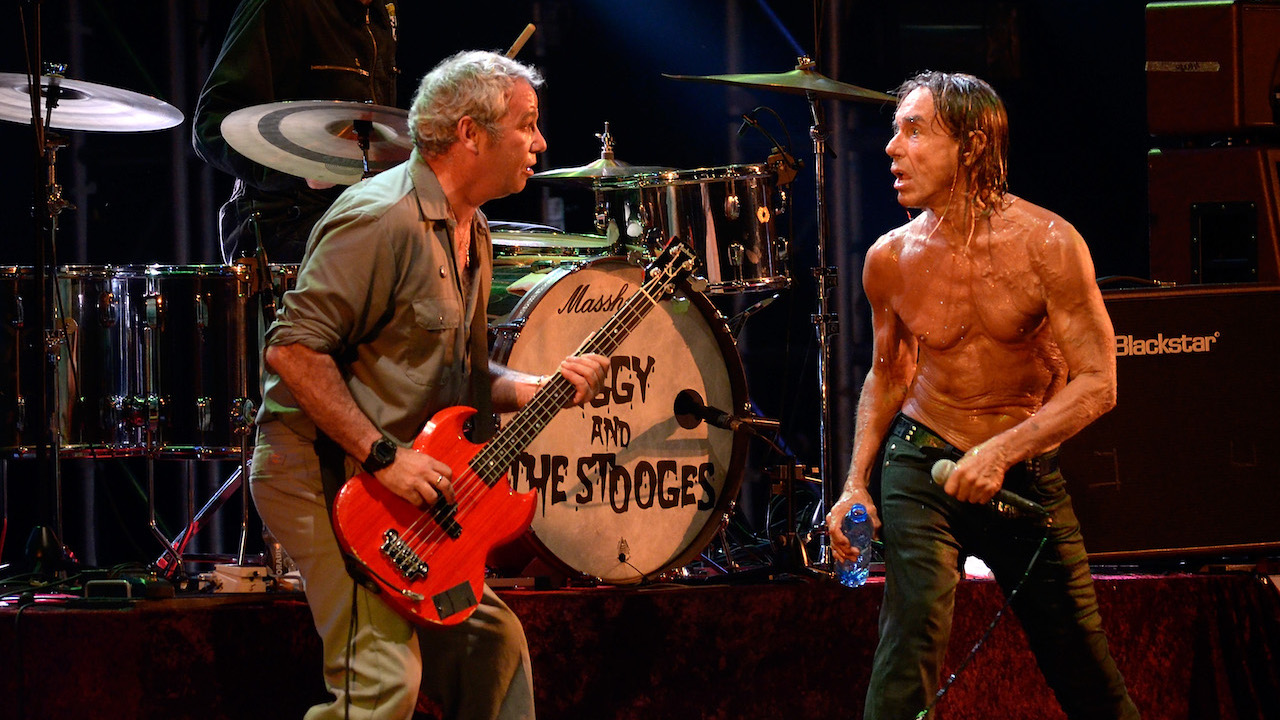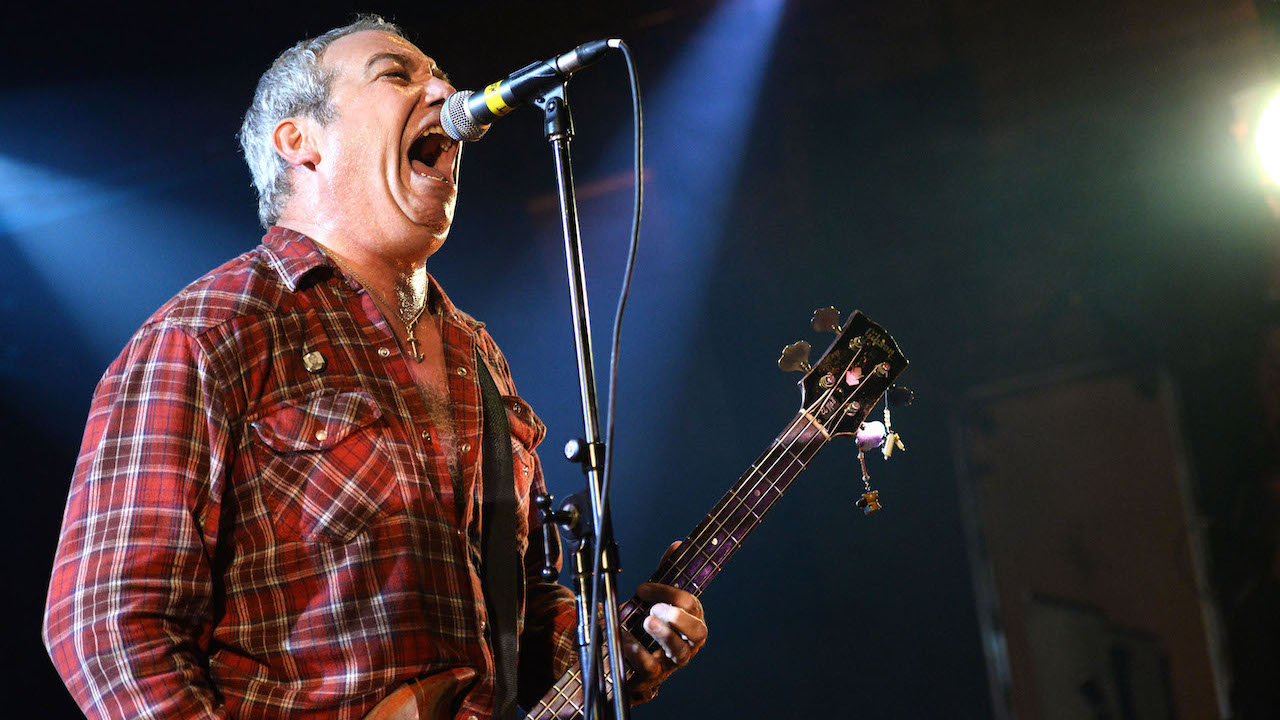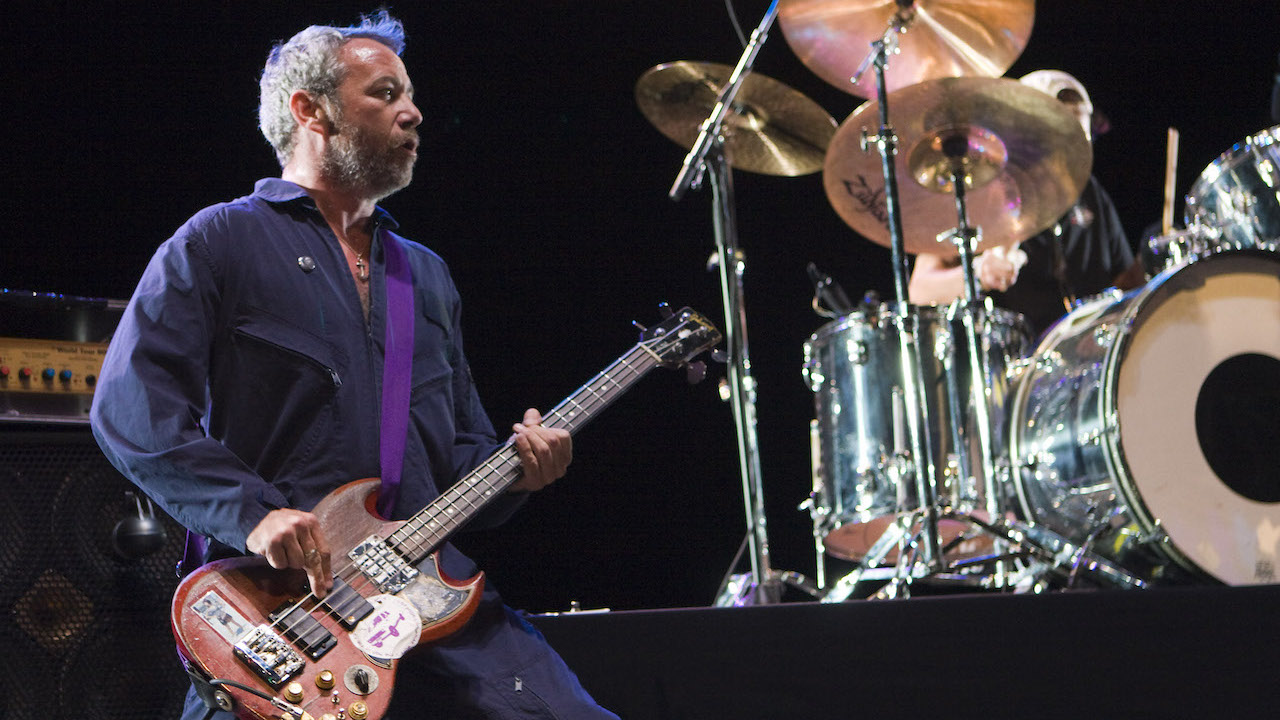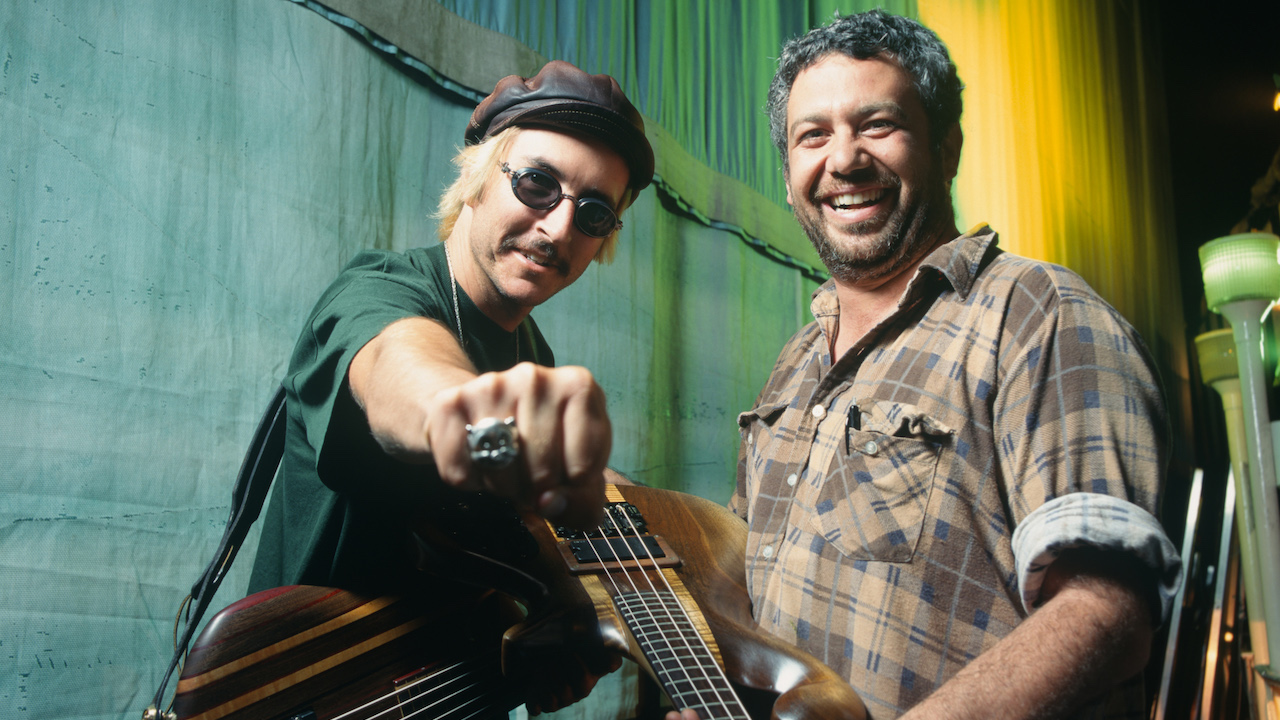Mike Watt: “I think for every 7-string bass they should make a 1-string!”
The patriarch of punk unravels his punk rock roots and the making of his 1995 solo album Ball-Hog or Tugboat?

All the latest guitar news, interviews, lessons, reviews, deals and more, direct to your inbox!
You are now subscribed
Your newsletter sign-up was successful
“It takes a lot of colours to make a rainbow,” said Mike Watt in his 1995 Bass Player cover story. “There are guys who play 7-string basses, there are guys who play 3-string basses, and I even met someone once who played a 1-string. I love the idea of people stretching the stereotype – to me, the more of that, the better. I think for every 7-string bass they should make a 1-string!”
Watt is a dyed-in-the-wool bass guitar legend to many. “Mike's innovative, melodic and hardcore, all at the same time," said Flea, who dedicated the Red Hot Chili Pepper’s mega-selling album, Blood Sugar Sex Magik, to Watt back in 1991. “He can also play the simplest thing in the world and imply that he can play anything. He’s one of the greatest bass players ever.”

The Virginia-born 65-year-old grew out of Southern California's late-'70s punk-rock scene, co-founding the seminal post-punk outfit the Minutemen with guitarist D. Boon and drummer George Hurley. In 1985, D. Boon died in a car crash. As part of a slow and painful healing, Watt and Hurley joined guitarist Ed Crawford, and alt rock band fIREHOSE was born. Watt toured almost constantly, taking time out to record two bass-duet albums, Dos and Numero Dos, with ex-Black Flag bassist Kira Roessler, to whom he was once married.
In 1994, fIREHOSE decided to call it quits. "It got kind of cruise-control," says Mike, "and I had never been in that situation before. Music was always very vital to me." Undaunted, Watt put together Ball-Hog or Tugboat?, an ambitious 17-song project with nearly 50 alternative-music guests, including such heavies as Flea, Pearl Jam's Eddie Vedder, and Nirvana's Krist Novaselic and Dave Grohl. Described by one writer as a “publicist’s wet dream," Ball-Hog was almost universally lauded by fans and critics alike.
The concept was simple yet profound: “I called it a wrestling record, so people wouldn't know what to expect,” said Watt. “It's the same reason I say I'm a punk bassist: so people won't call me a reggae or a ska player. I'm free to define myself. People wonder why I call myself a punk – a punk is someone who gets fucked in jail for cigarettes! But if you're a punk, you can play anything you want.”
This interview is from the September 1995 issue of Bass Player, and follows the release of Mike’s debut solo album, Ball-Hog or Tugboat?
Tell us about the recording of Ball Hog or Tug Boat?
“I made the record in two days in Seattle, eight days in L.A., and two days in New York. For the Seattle and New York sessions, there were no rehearsals; I just played the bass lick I had written, or I gave the other musicians a cassette of my little version. At least half of the people heard the lick for the first time on the spot – especially the Seattle players. Basically, I just laid out the bassline and went through it a few times, and then we went for it.”
How did you come up with the wrestling concept?
“After the last fIREHOSE gig I was thinking; ‘Well, what now?' The idea of a bass solo record seemed kind of anal, so I invented the wrestling idea so people wouldn't know what to expect. I was really scared to do it at first. This was the first time I’d done something without a real band, but I figured if I had my parts down then it would work. When the record was done, I noticed that it sounded like 17 different bands and one bass player who wouldn't get off the stage!"
All the latest guitar news, interviews, lessons, reviews, deals and more, direct to your inbox!
Do you think people’s perception of the bass guitar has changed?
"Where I come from, bass was always where you put the lame guy, but nowadays, a lot of kids decide this is what they want to play right off the bat. I'm sure back in the '60s a lot of people thought of the bass as a kind of toy, almost like a kazoo. We had to fight and earn the bass some respect, but it's come around – and it's still coming around, more and more. On the other hand, there's something cool about people not really knowing what we do: we're left free to define ourselves."
Do you ever play a 5-string bass?
“I play with my left-hand thumb a lot, and I can't even wrap my hand around one of those wide-o necks. I once had to play Norwood Fisher's 5-string, and I couldn't do it, even after he'd taken off the B string for me – although that was probably incompetence on my part. I guess there's something neat about that B string, if you're in a little club and people can actually hear it."

Do you have a practice routine?
“You know how bass is – if you don't play with a drummer for a while, you just lose it. You play too soft. To stay in practice, I used to get together with these two guys each morning, and we'd play Madonna songs. We called ourselves the Madonnabes. I used a semi-hollow Gibson Les Paul Signature bass; it's acoustic, so you can feed back with it, which is righteous. I don't use feedback for going over the top, like Hendrix – I just use it for sustain and for swells. I even got Les Paul to sign that bass; he was playing in a little club in Torrance, and I brought him the bass during soundcheck. He wrote on it, 'Keep on pickin' – and I can't play with a pick, so I guess the joke is on me!"
Have you been working on any other side projects?
“Flea, Les Claypool, and I have this idea of doing a project where we'd interpret all of ZZ Top's Tres Hombres on three basses. There would probably be a lot of hype built around it, but we'd like it just to come out. That's one of the reasons why I did this wrestling record. I just wanted it to come out of left field, so there wouldn't be all this hype. That's one thing I told the people at the label: you can't foul this; it's a personal project, and it should be treated with respect. Some of these guys will never get to make another Columbia record, and in a way I don't think Columbia will ever get to make a record like this again.”

What do you miss most about the punk scene?
“I miss a lot of the chaos of the old days. Back then, you never knew what the next band was going to sound like. Almost anything went, and it wasn't about haircuts or guitar styles. I first tried music when I was 12. I started hanging out with D. Boon in the San Pedro projects, and his mom wanted to get us to start playing music – probably just to keep us off the streets. So after school, we'd go to his place and try to figure out parts off records – Creedence, stuff like that – using his guitar. Basically, if the band was easy enough to copy off the record, we liked 'em!"
What do you remember about your early gigs?
"The only gigs we could play were keggers in people's backyards, where you'd play Great White Buffalo or something for 20 minutes. We also played a couple city-sponsored gigs out on the jetty. We'd be playing Black Sabbath and Alice Cooper songs, and people would throw so much shit at us. See, we didn't know we were supposed to tune with each other. And the singer would be doing this Alice Cooper/Kiss act, bleeding out of the mouth and everything.”
What was it like touring with the Minutemen?
"By the time we got the Minutemen going, hardcore was already on the scene, so the audiences were very conservative – little kids spitting on you and stuff. In those days we'd make a record every six months, because our records were like our flyers. We didn't tour to promote records – we made records to promote our tours. And some of those records were incredibly cheap to make: we made Buzz or Howl Under the Influence of Heat for $50, live to 2-track, and we made our best record, Double Nickels on the Dime, for $1,100. For that one, we mixed 45 songs in one night."
"In a way, the fact that Pedro was culturally redneck helped me, because it was like being in a Thermos bottle. I'd see bands move to Hollywood, and suddenly they couldn't write songs anymore. There's something about real-life experience that helps you in terms of coming up with ideas. Sometimes it's good to be up against the wall, where you need to make the most out of what you have.”
This issue first appeared in the September 1995 issue of Bass Player. Ball-Hog or Tugboat? is available to buy or stream.
Karl Coryat was Deputy Editor of Bass Player magazine in the 1990s. In the 2000s, he wrote two music books: Guerrilla Home Recording and The Frustrated Songwriter’s Handbook, the latter with Nicholas Dobson. In 1996, he was a two-day champion on the television game show Jeopardy!. He works as a comedian and musician under the pseudonyms Edward (or Eddie) Current.
